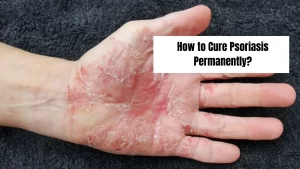
The spleen, an often-overlooked organ tucked beneath the ribcage on the left side of the body, plays a vital and intricate role in the body’s immune system and overall health. Despite its modest size, the spleen boasts a range of functions that are essential for maintaining optimal well-being.
The Spleen’s Role in the Immune System:
At the heart of its significance is the spleen’s role as a key player in the immune system. Acting as a filter for the blood, the spleen is responsible for identifying and eliminating foreign particles, such as bacteria, viruses, and damaged blood cells. It’s a powerhouse of immune surveillance, a relentless guardian that stands as the body’s first line of defense against invading pathogens.
- Antibody Production: Within the spleen’s white pulp, specialized areas produce antibodies—proteins crucial for targeting and neutralizing foreign invaders. This production enhances the body’s ability to mount effective immune responses.
- Detection of Blood-Borne Pathogens: The spleen is adept at identifying and flagging potential threats in the bloodstream. It helps initiate immune responses by signaling the production of appropriate immune cells and antibodies.
The Spleen and Overall Health:
Beyond its immune functions, the spleen also plays a role in overall health and stability:
- Blood Regulation: The spleen’s role in blood filtration and cell recycling contributes to maintaining a healthy blood composition, ensuring an adequate supply of functional blood cells.
- Emergency Blood Reserve: In times of acute blood loss, the spleen can release stored red blood cells into circulation, helping to stabilize blood volume and prevent complications.
- Hematopoiesis: During fetal development, the spleen takes part in the formation of certain blood cells. Although this role diminishes after birth, the organ continues to contribute to the maintenance of healthy blood.
Understanding the Spleen’s Function: A Key Player in Health and Immunity
The spleen, often overlooked in discussions of human anatomy, holds a pivotal role in maintaining overall health and supporting the body’s immune system. This unassuming organ, located beneath the ribcage on the left side, boasts a range of functions that contribute to our well-being. Let’s delve into a deeper understanding of the spleen’s functions:
- Blood Filtration and Quality Control:
Consider the bloodstream as a bustling highway, with red blood cells, white blood cells, and platelets zooming along. Just as debris can accumulate on a busy road, aging or damaged red blood cells and cellular fragments need to be cleared to ensure efficient circulation. The spleen acts as a vigilant custodian, meticulously sifting through the blood to identify and remove these worn-out cells. This process not only ensures a healthy blood composition but also prevents the circulation of cells that could potentially cause harm or hinder proper blood flow.
- Platelet Storage and Release:
Platelets are microscopic cell fragments that play a critical role in clotting to prevent excessive bleeding. The spleen functions as a reservoir for these tiny powerhouses. In times of injury, the body needs a rapid supply of platelets to initiate clotting and staunch bleeding. The spleen comes to the rescue by releasing stored platelets into the bloodstream, aiding in the body’s rapid response to injuries. This storage-and-release mechanism showcases the spleen’s adaptability in maintaining homeostasis, especially during emergencies.
- Immune System Support:
At the heart of the spleen’s significance is its involvement in the immune system. The spleen is home to a variety of immune cells, including lymphocytes and macrophages, which patrol the bloodstream and tissues for signs of invasion. It serves as an immune response training ground, priming immune cells to recognize and combat pathogens efficiently.
In specialized regions known as follicles within the spleen’s white pulp, the production of antibodies takes place. Antibodies are specialized proteins that tag and neutralize foreign invaders, enhancing the body’s ability to fend off infections. This antibody production is a testament to the spleen’s role in fostering robust immune responses and contributing to overall immune system function.
- Hematopoiesis During Development:
In fetal development, the spleen also plays a role in hematopoiesis—the formation of blood cells. While this function diminishes after birth, it highlights the organ’s involvement in the early stages of life.
Situations Requiring Spleen Removal:
Let’s explore some situations that might necessitate spleen removal:
- Trauma and Rupture: A traumatic injury to the abdomen, such as a severe blow or impact, can cause the spleen to rupture. This rupture can lead to internal bleeding and is a medical emergency. In cases where the spleen’s damage is extensive and cannot be repaired, surgical removal might be necessary to control bleeding and prevent further complications.
- Blood Disorders: Certain blood disorders, such as immune thrombocytopenic purpura (ITP) and hereditary spherocytosis, can lead to an enlarged spleen (splenomegaly). An enlarged spleen can cause discomfort, pain, or complications related to the blood disorder. In cases where medical treatments are ineffective or the spleen poses a risk to the patient’s health, splenectomy might be considered.
- Blood Cancers: In some cases of blood cancers, such as lymphomas or leukemia, the spleen can become enlarged due to the accumulation of cancerous cells. This can lead to discomfort, pain, or other complications. Spleen removal might be recommended as part of the treatment plan to manage the cancer and alleviate symptoms.
- Certain Infections: Infections such as splenic abscesses or severe cases of infectious mononucleosis (caused by the Epstein-Barr virus) can damage the spleen and impair its function. If conservative treatments are ineffective or the infection poses a significant risk to the patient, splenectomy might be considered to remove the source of infection.
- Non-Cancerous Tumors: Non-cancerous tumors, known as splenic tumors, can develop in the spleen. While many of these tumors are benign, some can cause symptoms or complications. If the tumor is large, causing discomfort, or posing a risk, surgical removal might be considered.
- Hemolytic Anemias: Certain hemolytic anemias, characterized by the destruction of red blood cells, can lead to an enlarged and overactive spleen. In cases where the spleen’s enlargement causes complications or significantly worsens the anemia, splenectomy might be recommended.
- Sickle Cell Disease: Individuals with sickle cell disease might develop complications such as splenic sequestration crisis, where the spleen traps a large number of red blood cells, leading to anemia and organ damage. In some cases, splenectomy might be considered to prevent or manage such crises.
Life After Spleen Removal:
Spleen removal, or splenectomy, can bring about changes in how your body functions and responds to various situations. While the spleen plays a crucial role in the immune system and blood regulation, living without it is manageable with the right precautions and medical guidance. Here’s what to expect and how to ensure a healthy and fulfilling life after spleen removal:
- Increased Infection Risk:
The spleen plays a vital role in fighting infections, particularly those caused by certain bacteria. Without a spleen, your body’s ability to defend against these infections might be compromised. It’s essential to be vigilant about avoiding exposure to infectious agents and to adhere to recommended vaccinations, such as the pneumococcal vaccine and the yearly flu shot.
- Vaccination Schedule:
Following spleen removal, your healthcare provider will provide a detailed vaccination schedule to help bolster your immune system’s defenses. Vaccinations help protect you against infections that the spleen would normally help prevent.
- Antibiotics and Immediate Care:
In some cases, healthcare providers might prescribe antibiotics to be taken prophylactically to prevent certain infections. Additionally, if you experience symptoms like fever, chills, or signs of an infection, seek medical attention promptly to prevent complications.
- Health Precautions:
To reduce the risk of infections:
Maintain good hygiene practices.
- Wash your hands frequently.
- Avoid contact with sick individuals.
- Be cautious around animals, as some infections can be zoonotic (transmitted from animals to humans).
- Travel Considerations:
If you’re planning to travel, especially to areas with higher infection risks, consult your healthcare provider for advice on additional precautions or medications you might need.
- Medical Bracelet or Card:
Carry a medical bracelet or card that indicates your splenectomy status. In case of emergencies, this information can help healthcare providers make informed decisions about your care.
- Nutrition and Hydration:
Staying hydrated and maintaining a balanced diet is crucial for overall health and immune function. Adequate hydration supports circulation and helps prevent blood clot formation.
- Regular Health Check-ups:
Regular check-ups with your healthcare provider are important to monitor your overall health, immunity, and to address any concerns promptly.
- Physical Activity:
Maintain an active lifestyle, as regular exercise can help boost your immune system and improve overall well-being.
- Emotional Support:
Adjusting to life without a spleen might come with emotional challenges. Seek support from loved ones, support groups, or mental health professionals if needed.
Precaution日本藤素
s and Lifestyle Adjustments: Living Without a Spleen
Yes, you can live without a spleen, but it requires certain precautions and lifestyle adjustments to ensure your health and well-being. The spleen plays a significant role in immune function and blood regulation, so its absence means you need to take steps to protect yourself from infections and other potential risks. Here are some precautions and lifestyle adjustments to consider:
- Infection Prevention:
- Vaccinations: Work closely with your healthcare provider to stay up-to-date with vaccinations. Vaccines for pneumonia, meningitis, and certain types of flu are particularly important for individuals without a spleen.
- Regular Check-ups: Schedule regular check-ups with your healthcare provider to monitor your overall health and immunity.
- Antibiotics:
- Prophylactic Antibiotics: Depending on your individual circumstances, your doctor might prescribe prophylactic antibiotics to help prevent bacterial infections.
- Immediate Medical Attention:
- Infection Symptoms: If you develop symptoms of infection, such as fever, chills, rapid heart rate, or difficulty breathing, seek medical attention promptly.
- Hygiene and Health Practices:
- Hand Hygiene: Practice good hand hygiene by washing your hands frequently, especially before eating and after being in public places.
- Avoid Sick Individuals: Minimize contact with people who are sick to reduce the risk of exposure to infections.
- Travel Considerations:
- Consult Your Doctor: If you’re planning to travel, especially to areas with higher infection risks, consult your healthcare provider for guidance on additional precautions you might need.
- Medical Information:
- Medical Bracelet or Card: Wear a medical bracelet or carry a card that indicates your splenectomy status. This information can be crucial in emergencies.
- Nutrition and Hydration:
- Balanced Diet: Maintain a balanced diet rich in fruits, vegetables, whole grains, lean proteins, and healthy fats to support your overall health.
- Hydration: Drink enough water to stay hydrated, as proper hydration helps with blood circulation and prevents clot formation.
- Physical Activity:
- Regular Exercise: Engage in regular physical activity, as it can boost your immune system and contribute to your overall well-being.
- Emotional Support:
Counseling or Support Groups: Adjusting to life without a spleen might have emotional aspects. Seek support from loved ones, support groups, or mental health professionals if needed.
Living without a spleen requires proactive care and attention to your health. While there are precautions to take, many individuals lead full, healthy lives after splenectomy. Working closely with your healthcare provider, adhering to recommended guidelines, and staying informed about your health can help you navigate life without a spleen successfully.
Insights from Healthcare Professionals: Living Without a Spleen
Healthcare professionals offer valuable insights on how to lead a healthy and fulfilling life after spleen removal. Here are some perspectives from medical experts:
- Dr. Sarah Johnson, Hematologist:
“Living without a spleen requires a partnership between the patient and their healthcare team. It’s crucial to maintain open communication and attend regular check-ups. We work together to ensure vaccinations are up-to-date, prescribe any necessary antibiotics, and educate patients about infection prevention. While there are precautions, many individuals go on to lead active lives and enjoy good health.”
- Nurse Practitioner Mark Davis:
“Our role is to empower patients with knowledge. We provide guidance on recognizing infection symptoms early and stress the importance of seeking immediate medical attention. Patients should also carry medical information indicating their spleen removal status. By adhering to precautions and staying informed, patients can minimize potential risks.”
- Dr. Lisa Thompson, Infectious Disease Specialist:
“Preventing infections becomes a top priority. I advise my patients to prioritize hand hygiene, avoid close contact with sick individuals, and practice healthy lifestyle habits. Travel considerations are also crucial—researching destinations and discussing travel plans with your healthcare provider can help mitigate infection risks.”
- Dr. Michael Chen, Surgeon:
“Patients often worry about the impact of spleen removal on their daily lives. While there are adjustments, it’s important to remember that modern medicine has made living without a spleen manageable. Patients should be proactive in their care, stay informed, and reach out to their healthcare provider with any concerns. It’s also heartening to see patients adapt and thrive.”
- Dr. Emily Adams, Immunologist:
“Education is key. I encourage patients to fully understand the role of the spleen and its absence’s implications on the immune system. Patients should work closely with their healthcare providers to create a personalized care plan that includes vaccinations, antibiotics, and infection prevention strategies. By taking a proactive approach, patients can lead healthy lives after spleen removal.”
These insights from healthcare professionals emphasize the importance of collaboration between patients and their medical teams. While adjustments are necessary, the journey of living without a spleen is navigable with the right guidance, precautions, and support. The key lies in education, communication, and proactive health management.
Conclusion:
Yes, you can live without a spleen. The spleen is an organ that helps the body fight infection, but it is not essential for life. After a splenectomy, other organs in the body, such as the liver, can take over many of the spleen’s functions. However, people without a spleen are at an increased risk of certain types of infections, especially serious infections such as sepsis. They may also have a harder time recovering from an illness or injury.
FAQ
Q1: What are the functions of the spleen?
Ans: The spleen filters blood, fights infections, and regulates blood cell levels.
Q2: What are the risks of living without a spleen?
Ans: Increased susceptibility to infections and a higher risk of certain complications.
Q3: How can I protect myself from infections without a spleen?
Ans: Stay up-to-date on vaccinations and consider taking daily antibiotics.
Q4: What symptoms indicate an enlarged or ruptured spleen?
Ans: Early satiety, unexplained bruising or bleeding, and pain/tenderness under the left rib cage.
Q5: Who is at a higher risk of infection without a spleen?
Ans: Individuals without a spleen or with a damaged spleen, especially those with weakened immune systems.





